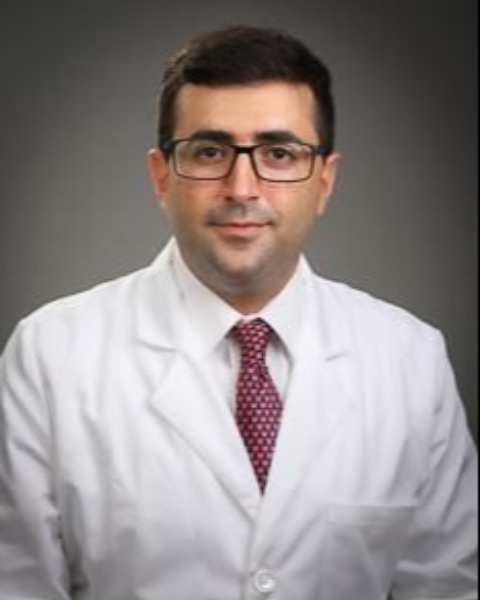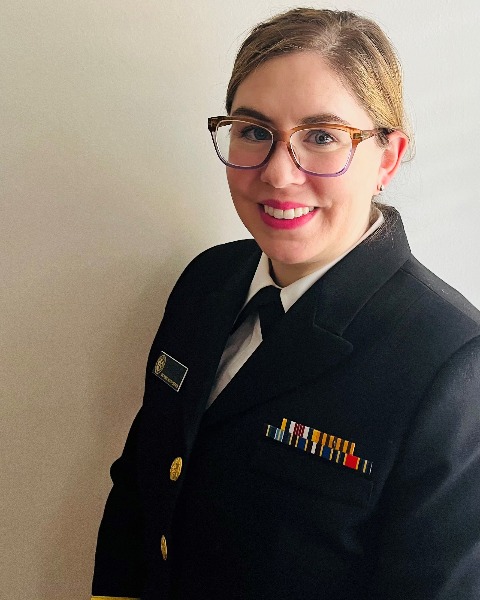Enhancing Infection Control through Enhanced Barrier Precautions in Skilled Nursing Facilities
1.00 CME / 1.00 CMD Management / 1.00 MOC
This session will review the CDC’s recommendations for the use of Enhanced Barrier Precautions in Skilled Nursing Facilities covering the 2019 interim guidance and 2021 White Paper expanding its use, and current state-of-the-art recommendations. The topics will cover epidemiology of MDRO infection and colonization in SNFs, proposed transmission of MDROs, defining EBP procedures and indications, the evidence base supporting EBP, implementation approaches and barriers, cost considerations, and unresolved questions. The session will be framed around a case-based discussion.
Learning Objectives:
- Describe the burden on MDROs and the reasons for the disproportionately high risk of MDRO transmission in SNFs.
- Define EBP and appropriate residents who would benefit from its use.
- Develop a plan for EBP implementation in SNF.
Presenters:
 Omid Salaami, MD, is an Attending at Scripps Clinic Medical Group in San Diego, California where specializes in post-acute and long-term care medicine. He is a recent graduate in Geriatric Medicine from Duke University where he also completed an advanced fellowship focused in PALTC.
Omid Salaami, MD, is an Attending at Scripps Clinic Medical Group in San Diego, California where specializes in post-acute and long-term care medicine. He is a recent graduate in Geriatric Medicine from Duke University where he also completed an advanced fellowship focused in PALTC.
 Kara Jacobs Slifka, MD, MPH, is an infectious diseases physician and medical epidemiologist in the Prevention and Response Branch within CDC’s Division of Healthcare Quality Promotion. In her role at CDC, she leads the long-term care team focused on improving infection prevention and containing and preventing the spread of infectious pathogens in the post-acute and long-term care settings through collaboration with health departments and partners, guidance and educational material development, and outbreak response.
Kara Jacobs Slifka, MD, MPH, is an infectious diseases physician and medical epidemiologist in the Prevention and Response Branch within CDC’s Division of Healthcare Quality Promotion. In her role at CDC, she leads the long-term care team focused on improving infection prevention and containing and preventing the spread of infectious pathogens in the post-acute and long-term care settings through collaboration with health departments and partners, guidance and educational material development, and outbreak response.
Credit Information:
Activity Created: 3/2023
Credits Expire: 3/2026
- 1 CME
- 1 CMD Management
- 1 MOC
Credit Statements:
CME: AMDA – The Society for Post-Acute and Long-Term Care Medicine designates this enduring material for a maximum of 1 AMA PRA Category 1 Credit(s)TM. Physicians should only claim credit commensurate with the extent of their participation in the activity.
AMDA – The Society for Post-Acute and Long-Term Care Medicine for Post-Acute and Long-Term Care Medicine is accredited by the Accreditation Council for Continuing Medical Education (ACCME) to provide continuing medical education for physicians.
CMD: This self-study activity has been pre-approved by the American Board of Post-Acute and Long-Term Care Medicine (ABPLM) for a total of 1 management hour(s) toward certification or recertification as a Certified Medical Director (CMD) in post-acute and long-term care medicine. The CMD program is administered by the ABPLM. Each physician should claim only those hours of credit actually spent on the activity.
ABIM Maintenance of Certification (MOC): Successful completion of this CME activity, which includes participation in the evaluation component, enables the participant to earn up to 1 Medical Knowledge MOC points and patient safety credit in the American Board of Internal Medicine’s (ABIM) Maintenance of Certification (MOC) program.
Participants will earn MOC points equivalent to the amount of CME credits claimed for the activity. It is the CME activity provider’s responsibility to submit participant completion information to ACCME for the purpose of granting ABIM MOC credit.
Visit the Continuing Education page for information on if and how you can claim credit/hours for AMDA’s education.
Disclosure Information:
The Society requires the disclosure of all speaker/faculty/planner’s relevant financial relationships; presence of off-label use of a device or medication; and discussion of any experimental, new or evolving topic prior to each accredited education activity.
If the learner perceives any bias toward a commercial product or service, advocation of unscientific approaches to diagnosis or therapy, or recommendation, treatment, or manners of practicing healthcare that are determined to have risks or dangers that outweigh the benefits or are known to be ineffective in the treatment of patients please report this to the Society’s staff.
- Julie Gammack, MD, CMD (Planner & Speaker): Stockholder: Amarin
- Kenya Rivas Velasquez, MD, CMD, FAAFP (Planner & Speaker): OptumRx: Stockholder
- All other planners, speakers, and AMDA staff have no relationships with ineligible companies.
All relevant financial relationships have been identified and mitigated.